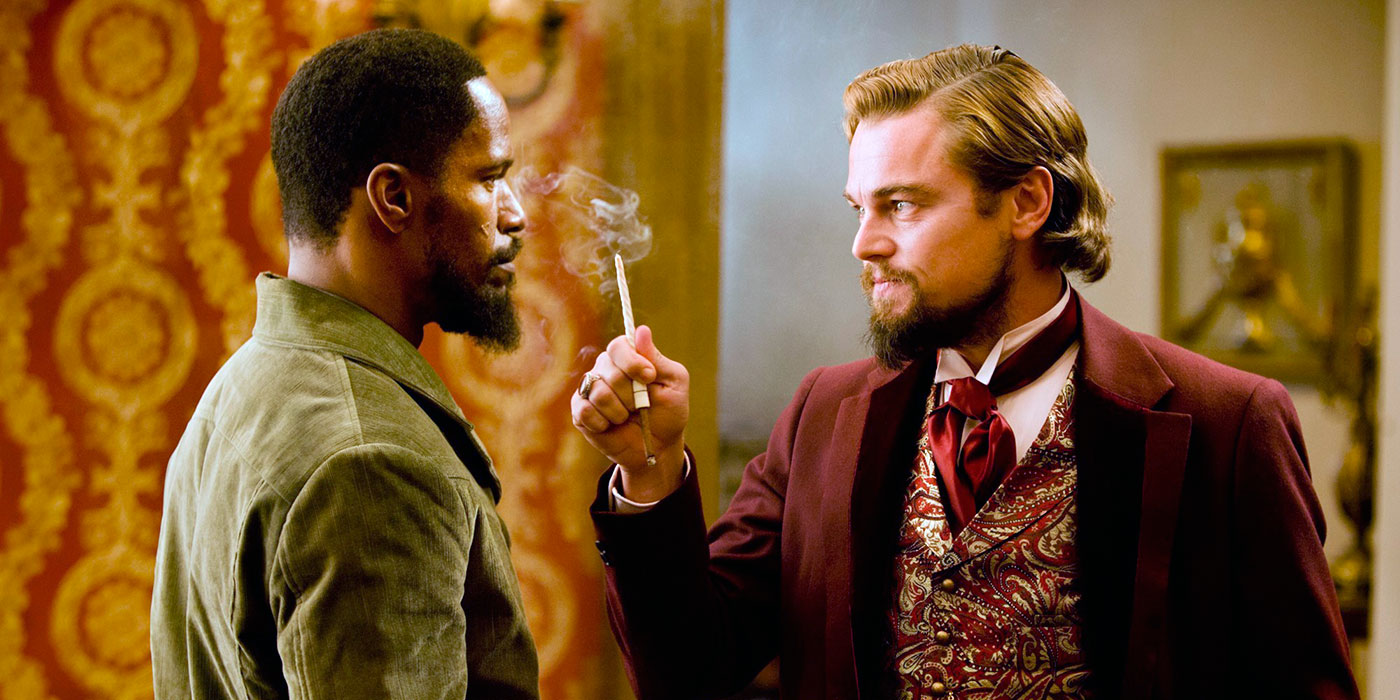WARNING: The following article contains spoilers.
I had a very complicated reaction to Django Unchained. Repulsion, glee, deep despair, anxiety, confusion, and, ultimately, awe. There are so many opposing, even anachronistic forces at work that the film ends up sitting in your stomach like many shots of different hard alcohols. And ultimately, I think this is one of the most important movies I’ve ever seen.
Lest we become flippant or cocky (as he often does) about race in our new and modern age, Quentin Tarantino reminds us of the horrors that people must commit willingly to create a phenomenon such as slavery, and the movie is in large part an exploration of oppression. Leonardo DiCaprio’s character, Candie, overtly references this theme when he says that he always wondered why the slaves didn’t simply rise up and “kill all the whites.” Oppressors pray upon the innate human need for self-preservation, simple, instinctual, in the moment, to keep the oppressed in a state of preposterous slavery. The very notion of slavery is as wild, insane, contradictory, and preposterous as the movie itself. And that is Tarantino’s deftest brush stroke.
The most poignant representation of this theme to me was the death of King, which infuriated me with its frivolity, and uselessness. But it was a man acting as senselessly as slavery itself, simply doing what was right: killing a sociopathic murderer so he would stop doing horrifying things to people. When King says, “I couldn’t help myself,” only to be blown away by a sawed-off shotgun, Tarantino shows us that the murder of Candie is precisely the kind of action that must not take place to permit oppression. People measure their actions, and weigh them against consequences, which are brutal and often final.
It is interesting to note that in his latest two films Tarantino tackles true, unequivocal evil, and enacts revenge fantasies through them. Machine-gunning Hitler’s face is quite a catharsis, as is killing I think literally every slave-owning, racist, or even a-moral person in Django. No one escapes, as they did in history, judgment for their crimes; however, large or small, the punishment is the same. By the end it seems that the bodies being riddled with bullets are nothing but sacks of marinara, and the sumptuous joy taken with each splashy sound-effect is rather disturbing. The juxtaposition of humor and violence is, as ever in Tarantino’s work, jarring and meaningful, in its homage to both “B” movies and the mortal circus of life. As I left the theater in a daze, the only thought I could form was that I needed to see the movie again immediately. There is deep power in it, and I have never seen anything like it. I’m surprised to say it, but I think it’s a true masterpiece.[spacer height=”8px”]
Mike Deni was interviewed by Jonk Music last year. His band Geographer visits the High Noon Saloon this Monday, January 21. Tickets are available here.




I have to admit, every time I see a Tarantino work, it always induces a strange fascination by the medley of violence and unfettered carnage that unfurls during the course of the movie. This article is excellent in that it reveals to me a deeper understanding thematically at least of Tarantino's works, something which I thought was lacking save the overarching ideas of vengeance and violence that seems to spur on every character in his movies. The only problem I find is that Tarantino seems to dispose of his characters so quickly and murder them in such horrific ways or force them to commit such brutal acts it's very difficult to empathise with them, especially considering they exist more so as violent caricatures of quasi-historical beings. They lack the fundamental human characteristics of mercy or compassion to truly connect with the audience save as violent sociopaths and any tragedy they invoke seems to evaporate very quickly. Still, the fact that this article has exposed a side of Tarantino I did not consider previously is still interesting…great article!